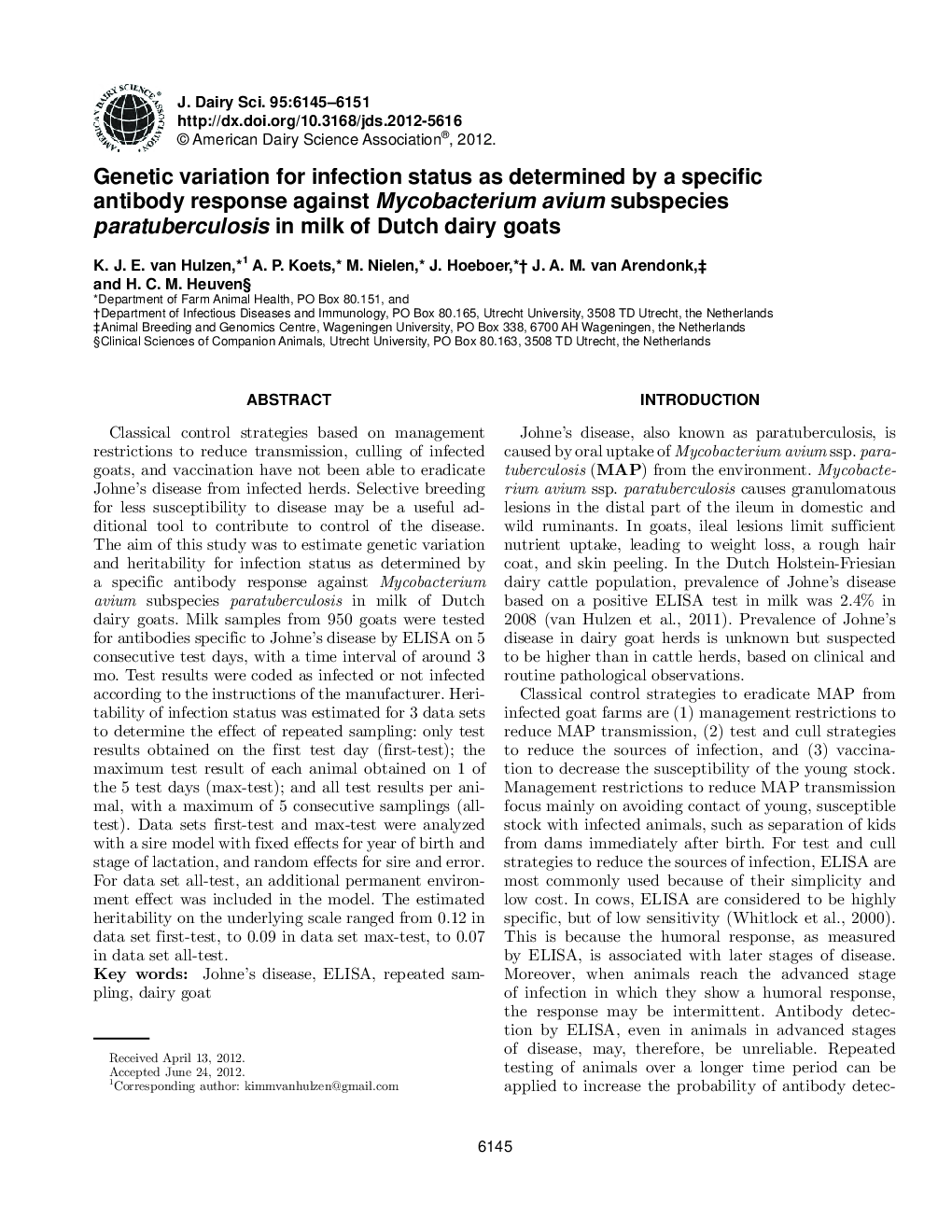| Article ID | Journal | Published Year | Pages | File Type |
|---|---|---|---|---|
| 10981331 | Journal of Dairy Science | 2012 | 7 Pages |
Abstract
Classical control strategies based on management restrictions to reduce transmission, culling of infected goats, and vaccination have not been able to eradicate Johne's disease from infected herds. Selective breeding for less susceptibility to disease may be a useful additional tool to contribute to control of the disease. The aim of this study was to estimate genetic variation and heritability for infection status as determined by a specific antibody response against Mycobacterium avium subspecies paratuberculosis in milk of Dutch dairy goats. Milk samples from 950 goats were tested for antibodies specific to Johne's disease by ELISA on 5 consecutive test days, with a time interval of around 3Â mo. Test results were coded as infected or not infected according to the instructions of the manufacturer. Heritability of infection status was estimated for 3 data sets to determine the effect of repeated sampling: only test results obtained on the first test day (first-test); the maximum test result of each animal obtained on 1 of the 5 test days (max-test); and all test results per animal, with a maximum of 5 consecutive samplings (all-test). Data sets first-test and max-test were analyzed with a sire model with fixed effects for year of birth and stage of lactation, and random effects for sire and error. For data set all-test, an additional permanent environment effect was included in the model. The estimated heritability on the underlying scale ranged from 0.12 in data set first-test, to 0.09 in data set max-test, to 0.07 in data set all-test.
Related Topics
Life Sciences
Agricultural and Biological Sciences
Animal Science and Zoology
Authors
K.J.E. van Hulzen, A.P. Koets, M. Nielen, J. Hoeboer, J.A.M. van Arendonk, H.C.M. Heuven,
